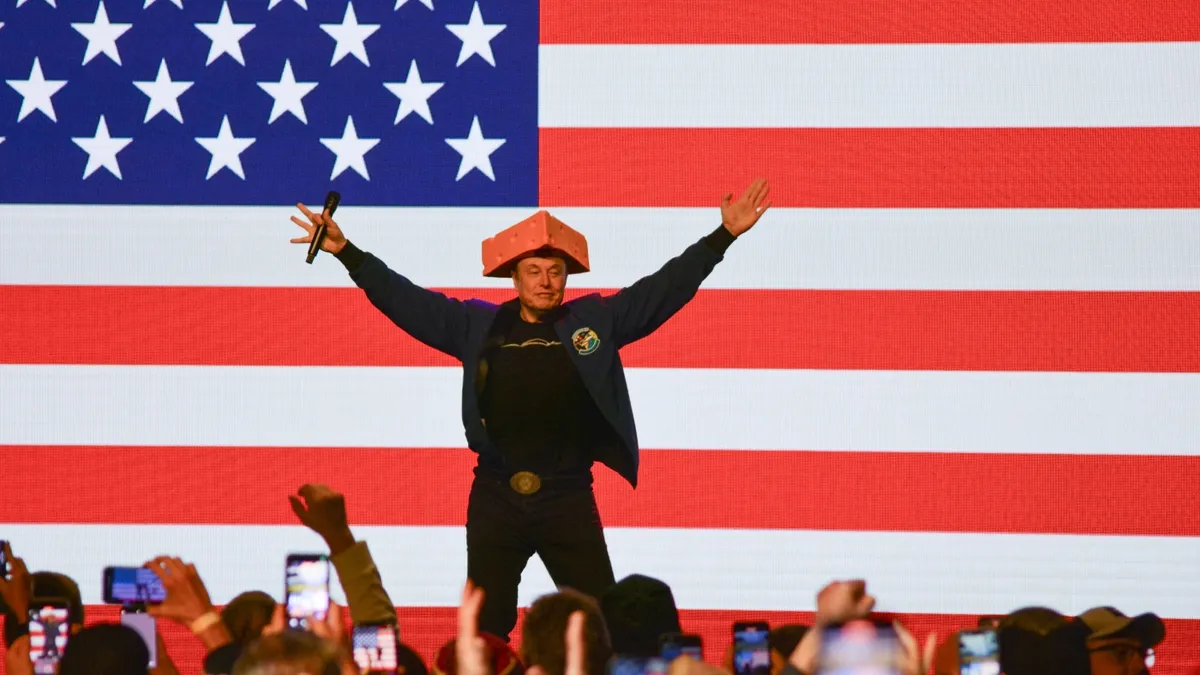
The upcoming Wisconsin Supreme Court election on Tuesday is set to spotlight many of the nation's most contentious issues and heated partisan politics. Key topics such as abortion rights, voting rights, and the powers of public employee unions hang in the balance, potentially influencing future court rulings that could reshape the state's legal landscape.
This pivotal election could also have national repercussions, particularly regarding the redistricting of Wisconsin's congressional districts. The outcome may determine if the Republican majority in the U.S. House of Representatives narrows or even vanishes in the coming years. With a significant influx of financial support from across the country, the stakes have never been higher.
In a race characterized by unprecedented spending, millions of dollars have been funneled into supporting the conservative candidate, Brad Schimel. Notably, billionaire Elon Musk has invested heavily, visiting Wisconsin to rally support while donning a cheesehead hat. At a recent event, he controversially distributed $1 million to attendees following a legal dispute over whether such actions amounted to bribing voters.
On the opposing side, the liberal candidate, Susan Crawford, has garnered millions in support from influential figures like billionaire George Soros and Illinois Democratic Governor JB Pritzker, as well as local philanthropists. With total spending expected to reach a staggering $100 million, this election marks the most expensive state judge race in history, according to the Brennan Center for Justice, a prominent non-partisan think tank.
Wisconsin is a swing state, having witnessed President Trump narrowly defeat Kamala Harris in the 2024 election. The state currently has a Democratic governor, Tony Evers, while the legislature is controlled by Republicans. This upcoming vote serves as a critical measure of Trump's ongoing popularity and the energy of Democrats following the recent election.
As Wisconsin's Supreme Court races are officially non-partisan, voters will not see party affiliations next to candidates' names on the ballot. However, the candidates are widely perceived as liberal or conservative, with this election aiming to fill a vacancy left by one of the four liberal-leaning justices for a 10-year term.
Both candidates vying for the Supreme Court seat are county judges. Brad Schimel, a Waukesha County judge and former Republican attorney general, is endorsed by Trump. In contrast, Dane County Judge Susan Crawford received an endorsement from former President Barack Obama last week. Crawford has an extensive background, having served as an assistant state attorney general and chief legal counsel for former Democratic Governor Jim Doyle.
Schimel's political history includes serving as Waukesha's district attorney and holding the position of state attorney general, though he lost his re-election bid in 2018. The heavy financial investments in this race mean voters are inundated with advertisements across television, digital platforms, and mail from both campaigns and independent groups.
The election has reignited discussions around critical issues that dominated the last presidential election. On the topic of abortion rights, Crawford accuses Schimel of endorsing an 1849 state law that has been instrumental in blocking abortion access in Wisconsin since the U.S. Supreme Court overturned the federal right to abortion in 2022. Currently, abortion is legal in the state up to approximately 20 weeks of pregnancy.
While Schimel acknowledges the law's validity, he claims that decisions surrounding abortion should reflect the will of the people. Conversely, Crawford emphasizes her experience representing Planned Parenthood of Wisconsin during her time as a private attorney, underlining the stark contrast in their positions.
Labor rights also play a critical role in this race. Crawford previously represented teachers opposing a 2011 law that limited public employees' collective bargaining rights. A recent ruling blocked this law, which may soon reach the state Supreme Court. Schimel has expressed his support for a ballot measure that would enshrine voter ID requirements in the state constitution, a stance Crawford argues is inappropriate for a judicial candidate.
The Schimel campaign has also embraced a topic that resonated with voters in 2024: opposition to transgender rights. One campaign advertisement features a woman claiming that Crawford supports allowing transitioning male teachers to access girls' bathrooms in schools. Advocates for transgender rights have denounced this approach as fearmongering.
Elon Musk's financial influence is particularly noteworthy, with reports indicating that he and associated groups have contributed at least $20 million to support Schimel's campaign. Misleading advertisements have also been circulated, seemingly originating from Crawford's campaign, and highlighting controversial phrases. Musk has been vocal about his interest in the race due to its implications for congressional redistricting, suggesting that a Crawford victory would allow Democrats to redraw district lines, potentially costing Wisconsin two Republican seats.
In response to Musk's involvement, Crawford remarked, "Elon Musk is really trying to buy a seat on the Wisconsin Supreme Court." Schimel maintains that he will enforce the law impartially, saying, "I will apply the law the way the legislature has written it," during their campaign debate.
With Musk's legal interests also intertwining with the Wisconsin courts as Tesla seeks exemptions from state laws, the stakes are incredibly high. As this historic election approaches, all eyes are on Wisconsin, where the outcomes could have far-reaching implications for both state and national politics.